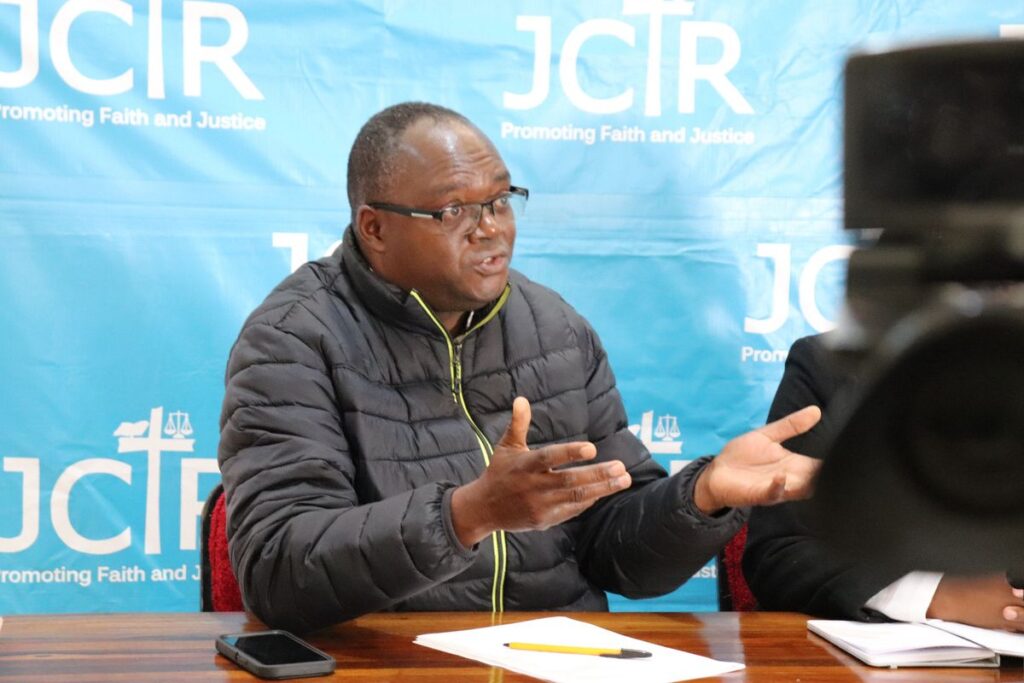JCTR Warns Zambia’s Constitution Review Is Flawed, Calls for Fair and Inclusive Process
The Jesuit Centre for Theological Reflection (JCTR) has expressed deep concern over Zambia’s ongoing constitutional amendment process, warning that the current approach risks undermining credibility, inclusiveness, and public trust.
In a statement issued on Thursday, JCTR acknowledged the appointment of the Technical Committee (TC) on the Constitution Review as lawful under Articles 92 (1), (2f) and (2j) of the Zambian Constitution. However, the organisation argued that the process, as it stands, is “flawed” and fails to reflect the diversity and aspirations of the Zambian people.
The statement, signed by Rev. Dr Boyd Kapyunga Nyirenda, S.J., Deputy Director of JCTR, outlined four key areas of concern: the composition of the Technical Committee, the consultation process, risks to democratic consensus, and the timing of the amendment exercise.
JCTR criticised the committee’s composition for not adequately representing Zambia’s ethnic, regional, gender, and civil society diversity. It also questioned the competence and accountability of some members, noting that individuals should be nominated by their respective organisations rather than appointed directly.
The organisation further observed that while the Committee’s scope is broad, its Terms of Reference (ToRs) remain “narrow and restrictive,” echoing previous concerns about Bill 7, which was widely criticised for limiting meaningful constitutional reform.
JCTR warned that the current consultation model, which gathers submissions only through Provincial Headquarters, is inherently selective and excludes grassroots voices. The organisation proposed Town Hall meetings, community radio outreach, and collaboration with civil society groups to ensure broad-based citizen participation.
“The current approach does not even ask Zambians whether they want their supreme law amended in the first place,” the statement reads, adding that this undermines the principle of a people-driven constitution.
The Centre emphasised the need for genuine dialogue and consensus-building, cautioning against elitism in the process. It noted that many citizens lack adequate understanding of the current Constitution, particularly in rural areas, and called for sustained civic education campaigns to ensure informed participation.
JCTR also questioned the timing of the process, suggesting it appears rushed and possibly aligned with the electoral calendar. “The Constitution must not be subjected to political expediency,” the organisation warned, urging that the process be given adequate time for national consultation, drafting, and review.
To restore legitimacy and trust, JCTR proposed:
- Recomposing the Technical Committee to reflect national diversity and institutional accountability.
- Expanding the mandate to allow citizens to propose broader reforms, including to the Bill of Rights.
- Introducing a Town Hall consultation system to capture grassroots perspectives.
- Creating independent oversight to ensure transparency and inclusiveness.
- Decoupling the process from elections to safeguard credibility.
Quoting the Compendium of the Social Doctrine of the Church, JCTR reminded citizens that “participation is a duty to be fulfilled consciously by all, with responsibility and with a view to the common good.”
In conclusion, JCTR urged government to adopt a transparent, inclusive, and participatory approach to constitutional reform.
“Zambia deserves a Constitution that reflects the aspirations of all its citizens,” Rev. Dr Nyirenda stated. “Only through national consensus, adequate consultation, and fairness can the country achieve a Constitution that stands the test of time and truly serves the common good.”



